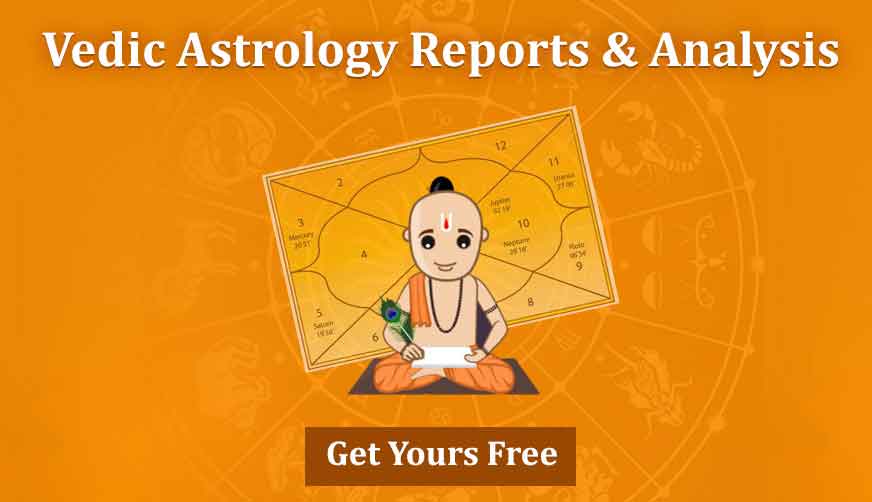The importance of Sun in Vedic Astrology
Story of Sun
There are many stories connected to each planet in Indian mythology, and you must have certainly heard some of them. There are many stories in Vedas and Puranas about the birth of Surya Dev or Sun too.
According to one, Lord Brahma wanted to create the universe. In order to do so, he created Prajapati Daksha from his right thumb and his wife from the left thumb. Marichi, the son of Brahma also known as Kashyap, married Daksha’s thirteenth daughter, Aditi. Aditi used to worship the Sun and hence she was blessed to have him as a child. After this, Sun also came to be known as Aditya because of being born to Aditi. But, according to Markandeya Purana, Sun was named Aditya at the time when universe was created.
Sun has various other names like Aditya, Arka, Aryama, In, Ushnarashmaya, Grahapati, Diwakar, Dinkar, Prabhakar, Ravi, Dinesh, Bhanu, Sar, Savita, Bhaskar and Martand.
Sun is the only star in our solar system that provides us light and life. All the planets receive their light from the Sun. Sun is considered to be the King of planets in astrology because of its unique qualities. It is considered to be the Karaka planet for a person’s soul, self respect and fame.
The Karakatwas of Sun
According to Vedic astrology, Sun is not only the Karaka planet for father and one’s soul but it is also the Karaka of the first and the ninth house in a Janma Kundali. It is also the Karaka planet of wheat, jaggery, malka dal, red sandalwood, red clothes and other red-coloured things. Sun can also be associated with forests, mountains, government and state related matters since Sun is considered to be the King of all the planets. Due to this reason, Sun is also considered the Karaka of bravery, anger, separation, violence and courage. It is also the Karaka planet for gold and Ruby.
The auspicious and inauspicious results related to all these things will depend on the placement of the Sun. You will get auspicious results when Sun is present in an auspicious house and is strongly placed. Otherwise, it will give inauspicious results.
For example, if you are trying to get a government job, you can only get one if Sun is in an auspicious house and in a strong position. This is because Sun is the Karak planet for issues related to government. We can analyse other things in the same way.
Impact of Sun in the Janma Kundali
In astrology, every planet has its own Swarashi, Mooltrikon rashi, exalted rashi and debilitated rashi. It is considered auspicious if a planet is in its exalted sign (Uchcha Rashi) and inauspicious when it is in its debilitated sign (Neech rashi).
When a planet is in its debilitated sign (Neech rashi), it does not show its qualities. If a planet is the Lord of an auspicious house but is present in debilitated sign (Neech rashi), it will give auspicious results. A planet in Mooltrikon rashi is considered auspicious.
The results of Sun are different according to its placement in exalted rashi, debilitated rashi, Mooltrikon rashi or its own sign. For example, if Sun is in Aries sign at less than or equal to 10 degrees, it will be exalted. Sun will be very strong in this position. If Sun is in Aries sign at more than 10 degrees, Sun will be exalted but its positive results will be decreased. Sun will also be very strong if you take birth in the Shukla Paksha.
At the other end, if Sun is in the Libra sign from 0 to 10 degrees, it will be debilitated. This situation is exactly opposite of being in an exalted sign. A person will be low in confidence due to this combination.
Sun is considered to be in its Mooltrikon rashi when it is in Leo sign from 0 to 20 degrees. This condition is also considered auspicious. Sun gives you auspicious results in Moolktrikon Rashi. But, not as much as when it is exalted. If Sun is in Leo sign at more than 20 degrees, it is considered to be in its own rashi. This condition of Sun is also considered auspicious.
Relationship of Sun with other planets
In Vedic astrology, planets are either friendly, neutral or enemies to each other. The natural friendship of planets with Sun is known as ‘Naisargik Maitri’. Similarly, enemy planets are known as Naisargik Shatru. Friendly planets for Sun are Moon, Mars and Jupiter. Mercury is neutral towards Sun. Venus and Saturn are enemies of Sun.
Along with Naisargik Maitri, planets also do ‘Tatkaalik Maitri’. It is based on the position of planets in a Kundali. Sun will be friendly to the planets which are present three houses ahead and three houses back from its original position. These planets will be friendly even if they are Naisargik Shatru for Sun.
A Panchadha Maitri Kundali is calculated by combining Naisargik Maitri and Tatkaalik Maitri. This Kundali tells us about the planets which are friendly to Sun. It also tells us about the enemies of Sun. You will receive auspicious or inauspicious results based on this Kundali. Let us assume that Mercury is a ‘Tatkalik Mitra’ of Sun in your Kundali. But, Mercury is considered neutral for Sun. Then in the case of a Tatkalik Mitra and a Naisargik Sam, it will be friendly to Sun in the Panchadha Maitri Kundali.
Determination of Strength of Sun in a Kundali
Sometimes, a planet is in a strong position in the Kundali but still does not provide auspicious results. If you will analyse everything in detail, you will notice that the planet is weak in Shadbal. Let us talk about Sun’s strength in Shadbal now. Sun is strong due to Sthan Bal in Aries, Leo, Sagittarius and Capricorn signs. It is considered most strong(Digbali) in the eastern direction and the tenth house.
Sun will be strong due to Kaal Bal if a person is born in the Shukla Paksha. Sun, Moon, Venus, Jupiter, Mercury, Mars and Saturn gain Naisargik Bal due to this. Sun is Cheshta Bali in Capricorn, Aquarius, Pisces, Aries, Taurus and Gemini signs. Sun is not strong in other signs. Sun is known to be Drigbali or Drishti Bali if it is aspected by Jupiter. It will give auspicious results in such a situation.
Auspicious | Inauspicious Transit of Sun
In Vedic astrology, the planets in transit are analyzed by considering Moon to be the ascendant. For example, if a transiting Sun is present in the third house, it gives you more positive and some negative results. It includes getting honour, profit in property related business, disputes resulting from ego and separation from brothers. If a transiting Sun is present in the sixth house, it cures diseases, gives happiness and gives success in competition. A transiting Sun in the tenth house will give you success in big projects. It may also give you profit in tasks related to government. If a transiting Sun is present in the eleventh house, it will cure diseases and will give you success.
Till here, we have talked about the auspicious results of the transiting Sun. Now, let us discuss the inauspicious results. A transiting Sun gives inauspicious results when it is in ascendant, second, fourth, fifth, seventh, eighth, ninth or twelfth house from the Moon. If a transiting Sun is present in the first house from the Moon, it will make you tired and irritated. It will also give you unreasonable journeys.
If a transiting Sun is present in the second house, it will give you diseases related to eyes, problems in domestic life and loss of money. A person may be unhappy if a transiting Sun is present in the fourth house. If a transiting Sun is present in the fifth house, a person may feel restless and helpless.
A person may lose respect if a transiting Sun is present in the seventh house. If a transiting Sun is present in the eighth house, a person may face problems related to government authorities. If a transiting Sun is in the ninth house, a person may be separated from relatives, his efforts may go in vain and the person may be disappointed. A person may get extra expenses and troubles with friends if a transiting Sun is present in twelfth house.
Remedies to strengthen Sun
If Sun is weak or is the Lord of an inauspicious house in your Janma Kundali or Varsha Kundali, you should recite the Beej Mantra at least seven thousand times. This should be started on a Sunday morning during the Shukla Paksha. A Dashansh Havan should be performed once you have completed recitation of the Beej Mantra seven thousand times. A Dashansh Havan means that you should recite 10% of the recitations during the time of the Havan.
You can also recite one of the Mantras of Sun. It should be recited 108 times. These Mantras should be recited in the morning. Read Aditya Hridaya Stotra to strengthen Sun in your Kundali. If you do not have much time, you can do this on a Sunday morning.
You can even fast on every Sunday to strengthen Sun in your Kundali. This fast should be started from a Sunday of Shukla Paksha. Before starting the fasts, you should decide the number of fasts which you want to keep. You should not use salt in your evening meal on the day of fast. You can also donate wheat, jaggery, red clothes, ghee, red fruits, utensils and sweets on Sunday.







